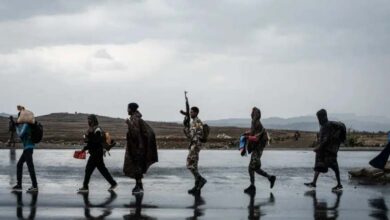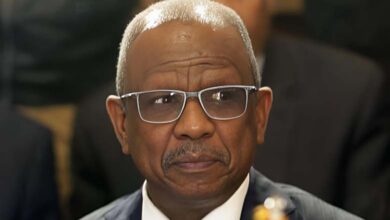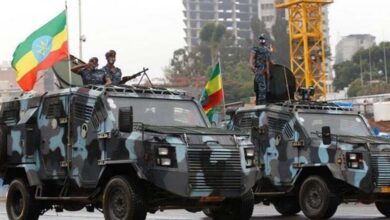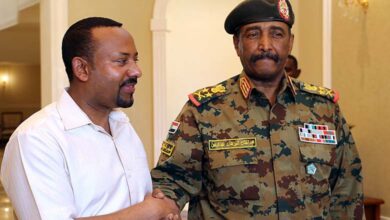Chemical Weapons in the Army’s Hands: Sudan on the Brink of a Perfect Crime

On-the-ground documentation and testimonies reveal the Sudanese army’s alleged use of toxic agents against civilians… Will the world take action?
In the latest chapter of Sudan’s unfolding tragedy, serious accusations have emerged against the national army, citing systematic violations against civilians, including—according to credible sources—the use of lethal chemical agents in military operations.
Eyewitnesses and medical reports obtained by our team confirm aerial strikes on residential neighborhoods, followed by symptoms such as suffocation, skin blistering, and immediate nerve damage—clear signs of exposure to agents like phosgene or chlorine gas.
-
Political Blackmail and Islamist Dominance over the Sudanese Army: No to War, Yes to Revolution
-
Sudanese Army’s Threats to its Neighbors: An Internal Distraction Signaling Regional Dangers
How does the army justify its actions?
So far, no official acknowledgment or denial has been issued by the military leadership.
Yet the calculated nature of these alleged acts points to deliberate decision-making at the highest command levels—not random battlefield chaos.
Not the first time… but the most dangerous
This is not the first time allegations of banned weapons have surfaced in Sudanese conflicts.
Similar reports emerged during the Darfur crisis in the early 2000s.
However, today’s danger lies in the political context: the Sudanese army appears determined to reassert its “military prestige” using methods akin to those seen in Syria and Iraq.
-
Sudanese Army Under Fire: Allegations of Civilian Abuses and Obstruction of Humanitarian Aid Amid International Calls to End the War
-
Sudanese Army Issues New Decision Banning Recruitment Operations for Allied Armed Movements
Post-Chemical Fallout: International Pressure Mounts
Sudan has been a party to the Chemical Weapons Convention since 1999.
Using such substances in internal conflict constitutes a grave violation, rising to the level of an international crime.
The questions now are no longer just ethical—they are legal:
- Will the Organisation for the Prohibition of Chemical Weapons (OPCW) launch a technical investigation?
- Will the International Criminal Court (ICC) intervene?
- Or will Sudan become yet another state that escapes justice?
-
Escalation of Tensions Between Sudanese Army Leaders and Islamist Militias: What Are the Causes?
-
Crisis of Trust between the Sudanese Army and Its Militias… What Lies Behind the Recruitment Freeze Decision?
Survivors Speak: “People choked and died without wounds”
“We saw a faint green mist in the sky, and then people started screaming… some collapsed without a drop of blood. It was as if the air itself was the killer.”
— Testimony from a woman in Kalakla, southern Khartoum, who survived an air raid last week.
The Path to Justice Begins with Journalism
This investigation is only the beginning.
Our newsroom is committed to pursuing this story to its conclusion, presenting these preliminary findings to human rights organizations, UN bodies, and global media networks.
-
Khartoum: Liberation or Genocide? Sudanese Army Accused of War Crimes
-
The Muslim Brotherhood’s Congratulations to the Sudanese Army… A Move That Reveals the Group’s Role in Fueling the Conflict
Scorched Earth, Chemically Enhanced
Since the early stages of the war, the Sudanese military has employed a scorched-earth strategy in regions deemed sympathetic to its enemies.
Escalating to chemical warfare marks a dangerous shift, positioning the army as a key violator of international humanitarian law.
Field sources and humanitarian reports indicate aerial and artillery shelling in areas such as West Kordofan and southern Khartoum, coinciding with cases of severe suffocation, blistering, and rapid death without visible injuries—all signs consistent with chlorine or phosgene exposure.
-
Khartoum’s Liberation Exposes Alliances: Muslim Brotherhood’s Congratulatory Message to the Sudanese Army Raises Questions
-
The Sudanese Army Committed Horrific Field Executions in Khartoum
Institutional Silence: When the State Enables Crime
Unlike irregular militias, the Sudanese army operates under a state flag—one that is a member of the UN and signatory to Geneva Conventions and the CWC.
Therefore, the use of banned substances cannot be dismissed as rogue behavior—it is an institutional decision.
This silence from military leadership signals complicity—or, at best, indifference to international law.
Internationalization is Coming… But Will It Be Too Late?
Historically, chemical war crimes have not gone unanswered.
From 1980s Iraq to modern-day Syria, their use has often triggered global intervention.
Sudan now teeters on that same threshold.
As documentation and survivor accounts accumulate, the case will increasingly draw the attention of international courts—even if diplomatic responses lag behind.
The OPCW, the UN Human Rights Council, and the ICC may soon have no choice but to act. But the question remains: how many more must die before the world moves?
-
Human Rights Organizations: Sudanese Army Involved in Summary Executions That Have Claimed Dozens of Civilian Lives
-
Sudanese Army’s Military Gains Undermine Chances of a Peaceful Resolution to the Crisis
The Political Message Behind Chemical Weapons
Deploying banned weapons is not just a legal breach—it’s a political statement.
The Sudanese army is signaling that it will stop at nothing, even silent extermination, to reassert dominance.
This message is aimed inward more than outward—toward opponents, neutral groups, and wavering allies.
It extinguishes any remaining hope for a comprehensive political solution and locks the nation into a prolonged cycle of open violence.
-
The Sudanese Army and the Use of Chemical Weapons: Recent War Violations and Humanitarian Impact
-
Sudanese Army Violations Against Civilians: War Crimes Threatening the Country’s Future
No Exit Without Dismantling the Killing Machine
Sudan faces a stark choice:
Follow a military institution that has lost its national and moral compass—or confront a bitter reality and dismantle the power structure that has reduced statehood to the barrel of a gun.
Peace will not come from fragile elite bargains, but from accountability.
The army must be redefined—not as a killing force, but as a professional sovereign body subject to law, not above it.
And it starts with one critical question:
Who gave the order to use chemical weapons?












